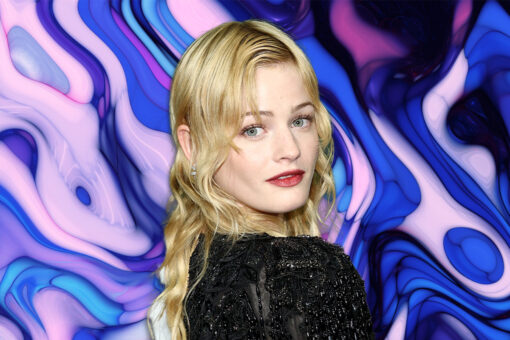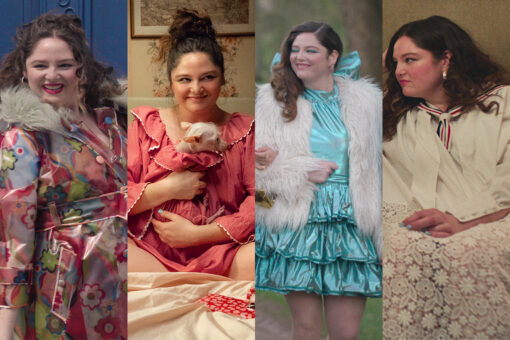Back in 2011, when I was in undergrad and no one had ever heard of COVID-19, my tight-knit group of friends started to watch the BBC series “Merlin.” We quickly became obsessed, and watching “Merlin” became a nightly ritual. We’d all huddle around a laptop, armed with snacks and endless mugs of tea, and watch until we couldn’t keep our eyes open. For us, “Merlin” was the perfect show, containing the right mix of humor, drama, and fanfiction fodder to keep us obsessed through the show’s end in 2012.
Nearly 10 years later from that first, fateful night on that dorm room floor, I’m still thinking about (and rewatching) “Merlin.” Not only because it remains one of my favorite British television exports, but because it somehow managed to be one of the most Jewish ones.
I know what you’re thinking: “Merlin”? Seriously? That is a bit of a stretch. What could possibly be Jewish about a BBC adaptation of Arthurian Legend?
Bear with me.
Arthurian Legend is derived chiefly from Breton, Welsh, Saxon, and other Celtic storytelling traditions. Over time, retellings have merged the Pagan and Christian aspects of these legends seamlessly (see the Holy Grail and all that talk about the “once and future king”) to the extent that anything Arthurian is Christian in essence. Moreover, there are no actual Jewish characters in this reimagining of Camelot, nor are there are any known Jewish actors among the series regulars. (A one-off appearance by Miriam Margolyes would seem to be the full extent of Jewish representation in the cast.)
Despite this, a premise that would seem on the surface to be removed from anything Jewish, the show somehow accidentally manages to be a deeply Jewish fantasy allegory.
The show follows a young Merlin (Colin Morgan), who arrives to Camelot ostensibly to learn medicine from the court physician, Gaius (Richard Wilson) only to find himself recruited to be manservant to an arrogant Prince Arthur (Bradley James). The problem? Merlin was born with magic, and magic of any kind is forbidden in the kingdom of Camelot. Those found to possess or practice magic, called “The Old Religion,” are put to death by the ruthless, bigoted King Uther (Anthony Head, in a cruel twist that will undoubtedly upset anyone more familiar with his Giles in “Buffy The Vampire Slayer”). Over five exceptionally bingeable seasons, Merlin must protect Arthur and come into his own power, while hiding his true identity and navigating a royal court responsible for the expulsion and mass murder of those just like him.
The simple fact of the matter is that if a European-inspired fantasy has a persecuted minority subject to genocidal violence, I am going to make assumptions — and most of them are gonna be Jewish. If the fantasy draws from ideas about medieval Britain, the birthplace of blood libel and site of many an anti-Jewish massacre, plus a 400-year expulsion…well, that’s practically begging for the comparisons. And “Merlin” makes that easy.
The Old Religion is not just a religion, but also something one can be born with, as well as a practice that can be studied and learned. We meet an array of characters, like Gaius, who are in essence the conversos of Camelot: They have publicly denounced their prior associations with magic but continue to practice in secret. There are whole episodes devoted to Inquisition-like measures taken by King Uther to root out suspected practitioners of The Old Religion. Additionally, the show utilizes a very Jewish ideas about naming. Through the series, Merlin has two names: Merlin, and a second, sacred name, Emrys, known only to the most devout members of The Old Religion, the Druids. There is also the small matter of all those with magic seem almost uniformly to have dark hair and striking features in ways that are likely drawn from the typical coding of witches in Western culture…which in itself comes in part from ideas about what Jews look like. Taken together, it all comes across as remarkably, if perhaps unintentionally, Jewish.
Now, “Merlin” is not the first series, or the last, to utilize some version of the “persecuted magical minority” trope. Nor is it the first, or last, to land on an allegory that feels pretty Jewish. But what makes “Merlin” different from similar allegories is how central the Jewish allegory is to the narrative. The effective genocide and expulsion of The Old Religion is the heart of “Merlin.” More than Arthur’s ascent to the throne of Camelot, more even than Merlin recognizing his “destiny” to help Arthur be Camelot’s greatest king, this a show about a Kingdom haunted by genocide.
Episode storylines are often set off by things like the desecration of an abandoned holy site or burial ground. Camelot’s internal problems are made more difficult to solve because the people who might have helped them, those with the power to stop dragons, or break curses, or with other special knowledge about the traditions of The Old Religion, are gone. Those with magic regularly secret themselves into Camelot’s borders for the purpose of avenging their people, or ally themselves with neighboring kingdoms in their wars against Camelot. This history of persecution drives the main characters, heroes and villains alike. It informs every decision the show’s villains make to undermine the kingdom, and every decision Merlin makes about how to fight a threat and survive.
Ultimately, the typical quests and hero’s journeys standard in Arthurian adaptations are all quite secondary to the plot of “Merlin.” Instead, the show is chiefly about survival, dual identities, and finding one’s place in a hostile world. That framing is what make the show feel Jewish in its bones, and why I’m still thinking about it, all these years later.
Late Take is a series on Alma where we revisit Jewish pop culture of the past for no reason, other than the fact that we can’t stop thinking about it?? If you have a pitch for this column, please e-mail submissions@heyalma.com with “Late Take” in the subject line.




